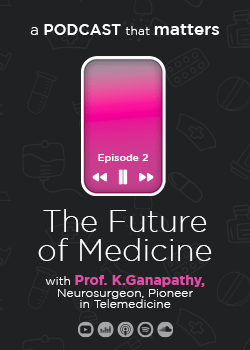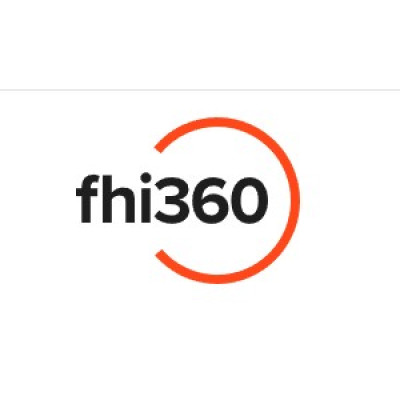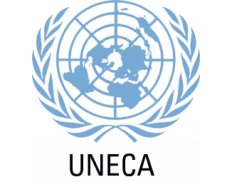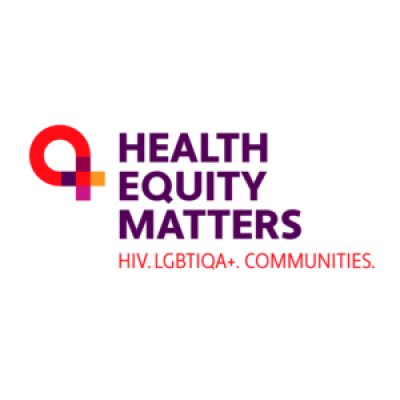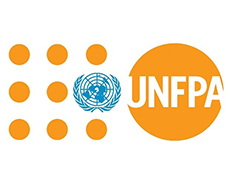Details
Description
The Deutsche Gesellschaft für Internationale Zusammenarbeit (GIZ) GmbH is a state-owned organisation. We work worldwide in the field of international cooperation for sustainable development. GIZ International Services (InS) is an integral division of GIZ.
We offer the experience, the regional and technical know-how of GIZ in the global market and provide international clients with expertise in terms of economic and result-oriented services.
GIZ International Services is currently implementing a project in Ethiopia : EU Support to Criminal Justice Reform in Ethiopia
Governance, justice, rule of law and Human Rights are at the core of the EU’s development agenda. The rule of law (enshrined in Article 2 of the Treaty of the European Union) is a prerequisite for protecting fundamental rights and democracy but requires independent, quality and efficient national justice systems.
Consequently, and in support of the reform agenda, the EU supports the Ethiopian Criminal Justice and Governance sectors in several ways. The programme to which this assignment applies is known as the “Support to Criminal Justice Reform in Ethiopia programme.”
The overall objective of the programme is increased rule of law, respect for human rights and access to justice for all.
The programme commenced with a formal signing of a 3-year grant agreement on 19 March 2021 with the EHRC. The Technical Support element which is designed to support the entire programme commenced a 4-year cycle on 15 October 2021.
It has been identified that a number of key institutions critical to the success of criminal justice reforms are desirous of, and require support to, deliver the broader reform programme.
Under this programme, those institutions are the Ministry of Justice, the Federal Supreme Court, the Ethiopian Human Rights Commission, the Ethiopian Federal Police and relevant sectorally operational CSOs.
To achieve the objective, the programme has three interlinked and mutually supportive Specific Objectives (outcomes):
- Enhanced horizontal and vertical coordination, collaboration, and cooperation between key criminal justice institutions.
- Increased effectiveness, efficiency, fairness, and accountability of the criminal justice system.
- Improved access to justice for all, in particular, the poor, women and other groups in vulnerable situations.
The programme is being implemented via direct grants to:
- The Federal Supreme Court to enable the Court to implement judicial reforms.
- The Federal Attorney-General Office to:
- support the Office in the implementation of reforms included in new law and policies;
- allow the Office to play its role in developing new legislation on legal aid and in the establishment of a forum of legal aid service providers and monitoring and evaluation of these services.
- The Ethiopian Human Rights Commission to:
- Continue to play its oversight role, to provide redress for victims of human rights violations and to hold justice institutions to account;
- Enhance its role in coordination of the provision of legal aid by NGOs and university-based law clinics.
The programme also has provision for a grant to a non-governmental organisation (NGO), public sector operator or EU Member State (Development) Agency to sub-grant national legal aid service provider NGOs and university legal aid clinics for the provision of legal aid; to provide capacity building of legal aid service providers and/or create networks or coalitions, and to monitor and evaluate the progress of the services offered. This grant has not yet been awarded.
Supporting the entire programme is a Technical Assistance Unit (TAU).
It is important to note, that the principal role of the TAU is that of a separate contract, designed to support the delivery of the Programme results and Strategic Objectives (SOs) by facilitating the implementation of the entire Programme through its own defined activity set. In addition, the TAU supports the Programme, by assisting the beneficiaries with regard to the grant procedure.
Objectives of the Assignment
The objective of this assignment is to contribute to the achievement of the expected results of the TAU contract in key areas of relevant programmatic work by means of offering support to the TAU and the relevant project implementation offices of key Beneficiaries and pursuing the enforcement of cross-cutting issues, such as rights-based approaches and gender equality.
Description of the Assignment
This assignment aims to significantly contribute to the following TAU activities, to be implemented jointly, as detailed hereunder.
It should be noted that the workplan only allocates SNKE man/days to activities 3.5 and 2.6; the fact that even activities 2.11 and 2.7 are taken up here does not imply delegation of KE work to an SNKE, but it does imply that all these activities, closely related thematically as they are, should be consolidated in the interest of achieving consolidated results. This means also that the SNKE while working on activities 3.5 and 2.6 should bear in mind that his/her work and outputs need to interlock with activities 2.11 and 2.7. Hence the need to implement all these activities jointly, while the thematic area will be revisited intermittently by the TAU (KEs) to ensure continuity, conformity and corrective action if deemed necessary.
Last, but not least, in the implementation of these activities the TAU, the SNKE and the JNKE to be mobilised at a later stage shall make extensive use of the experiences, expertise and tools of DCAF, who has contributed with considerable inputs in this thematic area.
TAU Activity 3.5 (Integrating cross-cutting issues: Human rights-based approach and gender mainstreaming).
The TAU will strive to mainstream gender equality in the different streams of the programme, emphasising the objective of equitable access to and quality of the justice service delivery, particularly to the most disadvantaged groups (including women, children, or other minorities). This requires the TAU to check the impact (positive or negative) of any envisaged project activity with the aim of promoting a gender-based approach during the project’s implementation.
The SNKE will support the TAU and beneficiary institutions to integrate gender equality and the protection and promotion of women's rights into the project interventions. Gender mainstreaming and gender-sensitive approaches and practices will continue to be applied throughout the project implementation. The TAU will assist the grantees to streamline gender issues in their work, in particular in policymaking and capacity-building activities.
A series of actions will be set up after determination by the Gender mainstreaming Non-Key Expert of specific training needs, sensitisation, and practices regarding comparative analysis in gender equity; gender roles and political participation, the exercise of basic human rights, issues of sexual and gender-based violence and access to justice.
TAU Activity 2.6 (Mainstreaming of gender and Human Rights into existing and new training programmes for members of criminal justice institutions at Federal and Regional levels and development of new training if required).
In order to mainstream Gender into existing and new training programmes for members of criminal justice institutions at Federal and Regional levels and/or develop new trainings, the TAU will facilitate an adaptive learning management process, required to achieve behavioural change and contribute to gender equality.
As appropriate and with the assistance of the SNKE, the TAU will conduct a training curriculum review to identify gaps in gender-specific training or the extent to which gender is sufficiently mainstreamed across training. The curriculum review will examine the extent to which gender is sufficiently addressed in examples provided in training, whether there is an opportunity for more gender-specific modules to be integrated, and whether gender-specific training is needed. Based on the curriculum review, the TAU will also provide support (advice and training) to the training institutions to reflect on their own institutional shortcomings in gender mainstreaming (institutional review of training systems). This includes a review of the systems and processes to consider gender elements in training strategies, analysing training needs, assessing gender-specific issues in the quality assurance framework of each institution (e.g., training feedback) selection systems for trainers and provide training support.
The TAU will also support the training with in the respective institutes to develop of on-the-job training activities corresponding to the needs and capacity of the specific criminal justice departments, namely for those individuals who are appointed to positions dealing with gender issues, but also new training programmes introducing new procedures, such as probation, rehabilitation and reintegration of female prisoners and other vulnerable groups.
Activity 2.11: Developing Gender Equality Policies/Strategies for all Criminal Justice Institutions.
This activity is designed to ensure that gender equality policies and strategies are relevant to the context and reflect the priorities of the individuals they are meant to support. International good practice has consistently highlighted the need for analysis and data to develop effective policies or strategies in relation to gender mainstreaming or promoting gender equality.
As the supported institutions have all either undertaken or are in the process of delivering Gender Assessment Audits the TAU focus will be on identifying synergies or gaps within the delivery and how it can support action planning, policies, procedures and training. This includes identifying relevant policies, guidance and legal frameworks, experiences (e.g., how is gender perceived), and understanding the experiences (e.g., how are the issues tackled in operations or practice) prior to proposing a set of gender or human rights initiatives into the training modules. The Non-Key Expert may support the institutions developing a curriculum specific to criminal justice programmes and providing the trainings.
The action plan will serve as the implementation framework and guide for determining relevant activities
under activities 2.6 and 2.7 below.
It should be noted that albeit no SNKE man/days are allocated to this activity, the SNKE mobilised under this assignment shall configure his/her work in such a manner so as to contribute to consolidated results in the entire thematic area.
Activity 2.7: Institutionalising gender and human rights in new procedures at the federal level and in targeted regions through the development of manuals, procedures, standing orders, instructions, guidelines etc.
The starting point for institutionalising Gender in new procedures at the Federal level and in targeted Regions needs to be a full understanding and analysis of gender issues in the criminal justice chain and across the supported criminal justice institutions as described in Activity 2.11.
This activity will build upon the gender and self-assessment audits as above and will include a thorough review of the policy framework and information on how procedures or policies cause or contribute to gender inequality.
As a next step, a sequenced and strategic action plan for reviewing and adapting the policies and legal frameworks will be proposed and developed for each institution and across the sector. Priority areas as identified in the action plan can be supported directly by the project – including supporting the process of reviewing/adapting relevant policies or developing specific procedures where they are lacking.
It should be noted that albeit no SNKE man/days are allocated to this activity, the SNKE mobilised under this assignment shall configure his/her work in such a manner so as to contribute to consolidated results in the entire thematic area.
Throughout the implementation of his/her assignment, the Expert should be guided by an inclusive and participatory approach that ensures the ownership and involvement of all major counterparts and partners.
Last, but not least, the SNKE shall also perform any other task broadly related to the assignment, if requested by the TAU.
Key Deliverables
- Brief inception report with an approach to the work and a detailed plan
- Review of the current gender audits, including any conducted by Regional institutions to determine where best the TAU can support and in what way the TAU activities can be aligned with current policies, practices and procedures of the relevant institutions.
- Where necessary, support the facilitation work of TAU to review existing, or to support development of action plans for promoting gender equality in the relevant institutions.
- Review and reporting of current gender-related training provisions within the Federal and Regional criminal Justice Institutions.
- Provide support to the TAU in reviewing training curriculums and provide trainings.
- Support relevant Directorates and training institutes in the development of their gender-related training activities.
- Support the TAU to develop its own Gender-Equality Action Plan, in support of the delivery of its own activities and grantee coordination, based upon all of the above information.
- Inputs into the ToRs and the definition of tasks of a JNKE, to be engaged under activities 2.6, 2.11 and 3.5.
- Guidance to the JNKE in the implementation of his/her assignment.
- Specific skills training with a focus on gender issues, equality and empowerment issues within the criminal justice institutions, elaborated and delivered.
- Capacities of the trainers and personnel of the training institutions developed.
- Final report on the totality of the work done at the completion of the assignment, the results achieved as well as lessons learnt, vestiges and recommendations for the future.
Steps/Milestones
|
Steps/Milestones |
Indicative Working Days |
|
Inception activities to define the approach to the work and detailed plan |
1 |
|
A synopsis report on the current status of gender equality audits, polices procedures, operating practices and training provisions within the supported criminal justice institutions, to include: A review of the policy framework and information on how procedures or policies cause/contribute to gender inequality; |
6 |
|
Development of a Gender-Equality and Rights-Based Action Plan for adopting the policy and legal framework, to include: Support to relevant criminal justice institutions; Relevant policies and specific procedures; |
4 |
|
Review and reporting of current training provisions within the Federal and Regional criminal Justice Institutions and identification of Gaps and preparation of Training Needs Analysis relevant to the assignment to include: A training systems review; A training curriculum review; Development and delivery of training modules. |
5 |
|
Inputs on the configuration of an JNKE assignment to work under activities 2.6, 2.11 & 3.5 and the definition of the tasks to be performed in a way that complements the present assignment. |
1 |
|
Review and report into the current institutional and legal framework within the Federal and Regional Criminal Justice Institutions, related to the objectives of the assignment. |
3 |
|
Identification of gaps in the legal and institutional framework, that can be addressed with measures other than training; issue of recommendations. |
3 |
|
The organisation of a workshop and subsequent presentation where the findings and the recommendations can be discussed. |
2 |
|
Development and delivery of training modules. |
8 |
|
Final assignment report. |
2 |
|
TOTAL: |
35 |
Required Skills and Competencies
Required skills and qualifications of the individual consultant include:
- Academic degree in a legal, human rights or gender-related subject;
- Postgraduate degree in a gender-related or assignment-relevant field.
General professional experience:
- At least ten years of relevant professional experience in an area relevant to the assignment;
- At least 5 years of experience in working within the thematic area of gender.
- Experience working within the thematic area of gender in the Ethiopian context is required;
- Experience in academic research in gender, children’s issues or empowerment;
- Advanced computer literacy;
- Fluency in English and Amharic including excellent speaking, presentation, and written reporting abilities, is required;
- Excellent communication, analysis, writing and presentation skills;
- Experience in establishing strong working relationships with a wide range of stakeholders;
- Ability to conduct the assignment with minimum support;
- Demonstrable interpersonal skills.
Specific professional experience:
- Demonstrable experience in conducting assignments in Criminal Justice, in particular, assessments, research, papers, publications and/or legislative drafting;
- Experience in designing and conducting gender, child-specific, equality or empowerment assignments would be a strong asset;
- Demonstrable experience in developing and delivering training modules within the gender equality and empowerment environments;
- Familiarity with the Ethiopian Criminal Justice legal framework, its institutions and key players would be an asset;
- Demonstrable experience and understanding of international standards in the fields of gender, children’s issues, equality and empowerment.
Duration and timeline
Location: Addis Ababa or work remotely, if warranted by the prevailing security and/or public health conditions.
Indicative Starting date: 1 February 2023
Latest End Date: 31 July 2023
Total number of working days: 35 working days
The Benefits
We are a provider of international cooperation services for sustainable development and work to build a future worth living around the world. We support projects in over 130 countries to achieve goals sustainably together with our partners., Everyone has the same opportunities in our company, regardless of gender, nationality, religion, sexual orientation or physical disability. We recruit based on specialist expertise and social skills. Transparency and fair opportunities for career advancement are just as much a matter of course for us as gender not being a barrier to taking up a management position.
We create prospects for people and with people. As GIZ has an international mandate, we offer a multicultural working environment. We are committed service providers and dedicated professionals, even under difficult circumstances. We take pride in enabling our employees to develop their professional and personal skills. There are plenty of reasons to join our motivated team – ranging from the diverse challenges you will face on a daily basis in one of our 130 partner countries, to the broad scope you will have for shaping your work.
How to apply
Interested candidates are invited to submit their applications via the link below- CV in English only by Friday 23 December 2022.
Candidate applications will be reviewed on a daily basis.
Link for applying: Gender and Human Rights Mainstreaming Senior Non Key Expert (hr4you.org)
Only shortlisted candidates will be contacted. Thank you for your understanding.

